Search Images
Browse Content (p. 1591)
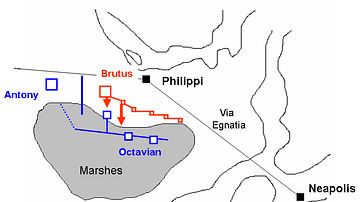
Image
2nd Battle of Philippi 42 BCE
A map showing the opening positions and attacks of the second battle of Philippi in 42 BCE between the forces of Mark Antony & Octavian against those of Brutus.
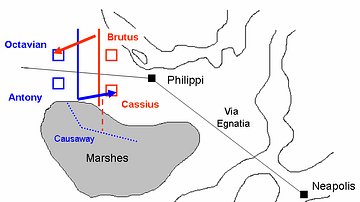
Image
1st Battle of Philippi 42 BCE
A map showing the opening positions and attacks of the first battle of Philippi in 42 BCE between the forces of Mark Antony & Octavian against those of Brutus and Cassius.
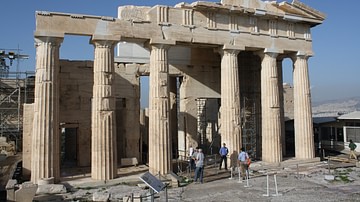
Image
Propylaea, Athenian Acropolis
The Propylaea, the monumental gate to the acropolis of Athens. Interior (west) view. Architect: Mnesicles, c. 437–431 BCE.
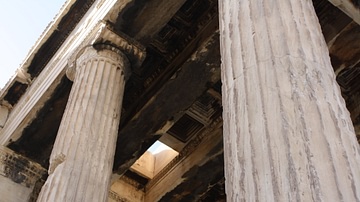
Image
Erechtheion Roof Detail
The roof of the porch of the Erechtheion with an apertuture through which it was believed Zeus struck down Erechtheus with a thunderbolt (in revenge for killing Poseidon’s son Eumolpos). 421-406 BCE.
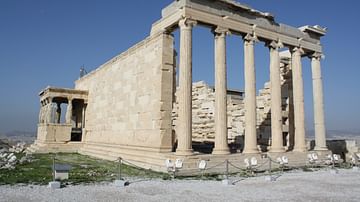
Image
Erechtheion
The Erechtheion temple of the Athenian acropolis was constructed between 421 and 406 BCE. The temple was built to house the ancient cult wooden statue of Athena and as a shrine to other local gods such as the early Athenian kings Erechtheus...
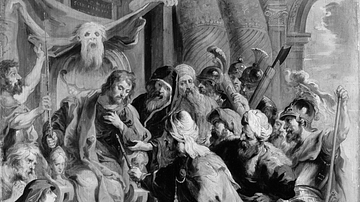
Image
Cambyses Appointing Otanes Judge
Cambyses Appointing Otanes Judge, copy after Peter Paul Rubens, probably 18th century CE, Metropolitan Museum of Art, New York.
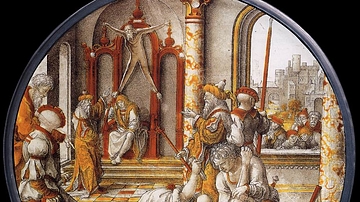
Image
The Judgement of Cambyses, Vellert
Dirck Vellert, The Judgement of Cambyses, stained glass, 1542 CE, Rijsmuseum, Amsterdam. This panel shows a scene from Herodotus's Histories: Sisamnes, a corrupt judge, is ordered to be flayed alive by Cambyses, the Persian king. His skin...
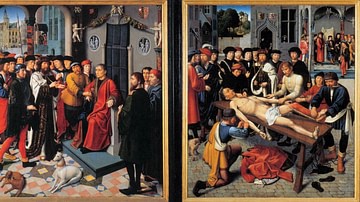
Image
The Judgement of Cambyses, David
Gerard David, The Judgement of Cambyses, 1498 CE, Groeninge Museum, Bruges, Belgium. This diptych shows a scene from Herodotus's Histories: the arrest and flaying of the Persian judge Sisamnes, who was a corrupt judge, by order of Cambyses...
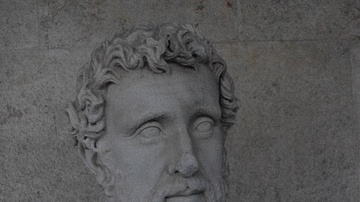
Image
Antoninus Pius, Agora, Athens
Bust of Roman Emperor Antoninus Pius from the Ancient Agora Museum in Athens, 138-161 CE.
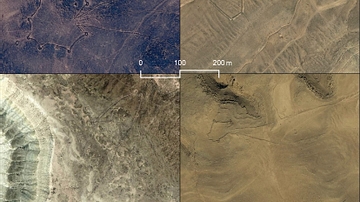
Image
Desert Kites
Extracts of satellite images from Google Earth and Bing of kites from the Harrat-al-Sham in Jordan (above left), Qaratein area in Syria (above right), Ustyurt Plateau in Kazakhstan (bottom left) and the mountains of Palmyre in Syria (bottom...